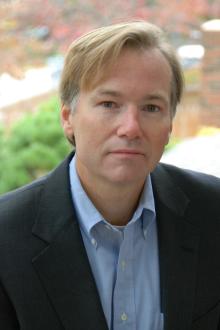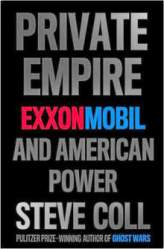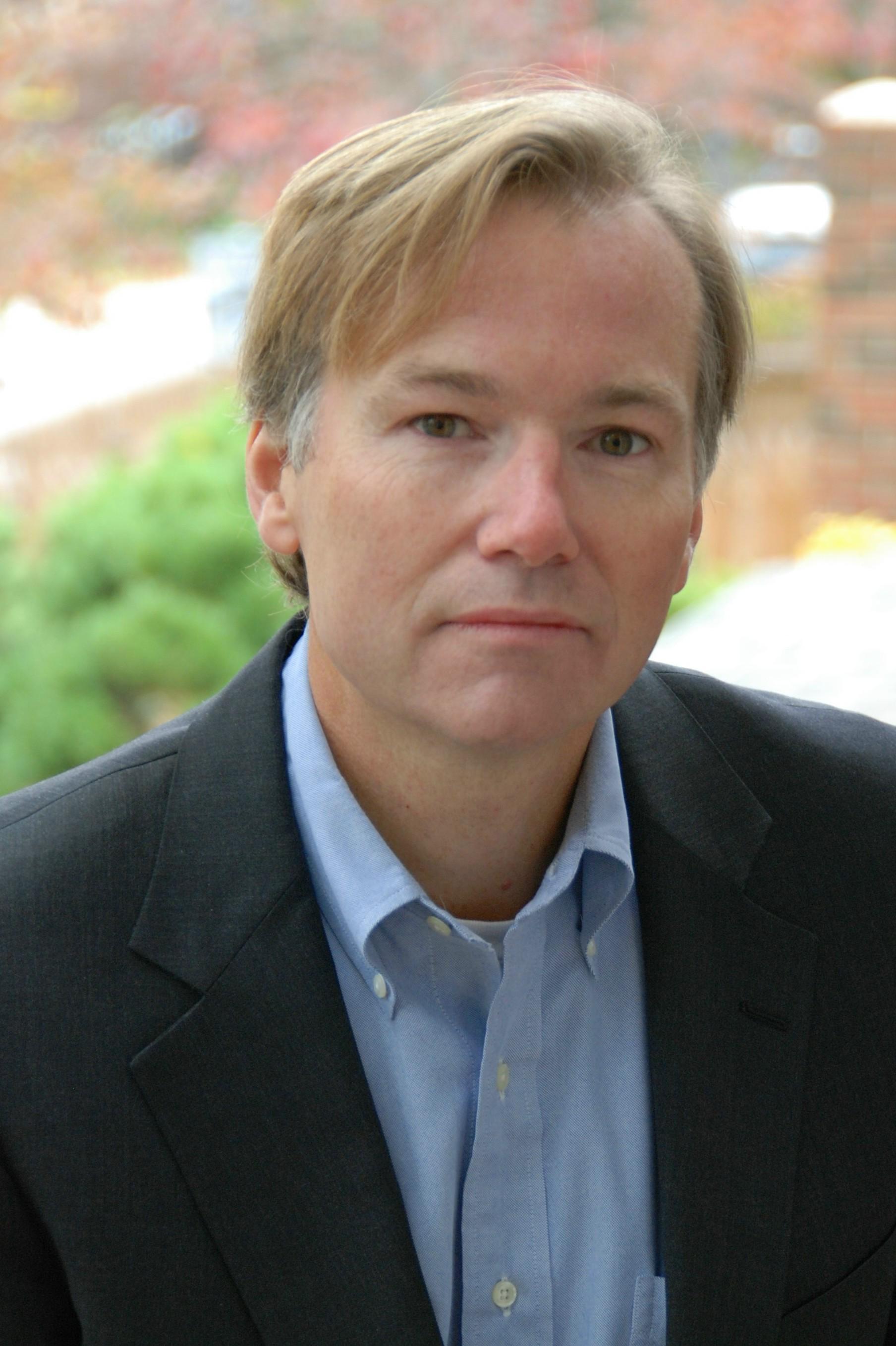 Steve Coll is a master at getting behind locked doors. As an investigative journalist with two Pulitzer Prizes to his name, Coll has cracked the likes of the Central Intelligence Agency and the bin Laden family. But he had never met an institution quite as closely guarded as his latest subject, ExxonMobil, a company whose $550 billion in revenue last year dwarfs the Gross Domestic Product of most nations.
Steve Coll is a master at getting behind locked doors. As an investigative journalist with two Pulitzer Prizes to his name, Coll has cracked the likes of the Central Intelligence Agency and the bin Laden family. But he had never met an institution quite as closely guarded as his latest subject, ExxonMobil, a company whose $550 billion in revenue last year dwarfs the Gross Domestic Product of most nations.
“They’re very disciplined, they’re very tightly organized, and they have a very emphatic policy of avoiding press coverage,” says Coll, a longtime editor at the Washington Post who is now a staff writer at the New Yorker and director of the New America Foundation, a Washington, D.C., think tank.
It took three years to get into the heart of this beast, but Coll ultimately did it, even landing interviews with the company’s longtime CEO, Lee Raymond, a chemical engineer by training who famously denied that humans were causing climate change, and poured company money into climate denial organizations and campaigns.
 The result of Coll’s labors is Private Empire: ExxonMobil and American Power, a book that takes us from the Exxon Valdez oil spill up to the present day, tracking the company’s evolution through an era when its stance on climate change became less and less tenable, both scientifically and legally. I caught up with him over coffee recently as he passed through Seattle.
The result of Coll’s labors is Private Empire: ExxonMobil and American Power, a book that takes us from the Exxon Valdez oil spill up to the present day, tracking the company’s evolution through an era when its stance on climate change became less and less tenable, both scientifically and legally. I caught up with him over coffee recently as he passed through Seattle.
Q. Tell me about the money ExxonMobil poured into campaigns to discredit climate science.
A. In 1997, when the Kyoto [climate] accords were brought into being, there were many constituents and politicians in the United States that opposed American ratification on fairness grounds, on equity grounds, on economic competitiveness grounds. But I think the record shows that ExxonMobil took a much more radical view of the challenge of Kyoto. More than virtually any other American-headquartered, shareholder-owned corporation, it funded communications groups and campaigning groups to challenge the science itself. I think of it as a pretty radical decision for a corporation of that size and scale in the American democracy to go after the science that way. I think it made a difference, and it still resonates in the American debate. In what other case would you see as wide a gap between what, say, 97 percent of the relevant scientists believe, and what the public believes?
Q. The company now acknowledges that climate change is a reality — and even supported a carbon tax in 2009. Why did it change its story?
A. The corporation had been in a kind of running battle with its opponents, who had gradually exposed these campaigns and [corporate] funding and really had gone after ExxonMobil’s reputation, comparing them to tobacco companies. By 2005, they’re really isolated because they’ve been exposed [as funders of climate denial] and because the science has moved [in support of climate change]. The board and elements of senior management believed they really needed to change their tone, but they didn’t want to restate their views in such a way as might create an opening for liability lawsuits. So essentially the message was, “We were never wrong. We were only misunderstood.”
Q. Could Big Oil someday be forced to pay for its cover-up of climate science, the same way tobacco companies had to pay?
A. Looking back on the tobacco industry, we know that they knew that the actual product they were manufacturing and marketing was dangerous to human health and they suppressed their scientific evidence. They buried that information and sold the cigarettes directly to you and the cigarettes were addictive.
Turn to ExxonMobil by comparison. The causation between selling gasoline and global warming is less direct. There’s another problem which is, who’s the victim, in a legal sense? In the tobacco cases you have deaths, you have people who are sick right now, whereas the victims of global warming probably will live in the future. There are some communities that have tried to sue on the basis of, “We know certainly enough that our community will be destroyed as the seas rise,” but those kinds of indirect claims so far haven’t gotten traction.
But the main difference so far is, we don’t know that [oil companies] were aware within their own scientific evaluation of global warming that the best evidence showed that the burning of fossil fuels was causing global warming and they suppressed it.
Q. But I thought your book showed pretty clearly that ExxonMobil scientists did know that climate change was legit — they were looking for ways that the company could profit from it, right?
A. Investigating how to profit from global warming if it occurs isn’t the same as knowing that it is underway — at least not in a courtroom. You’re right in a directional sense but the tobacco companies fell because decades of lawsuits unearthed voluminous records showing that the companies knew smoking was deadly to their customers but covered up the evidence. With the oil companies, we don’t yet have those kinds of internal documents. It’s possible those documents are there in their archives, but no whistle-blower has walked out to say, “We knew this all along.”
Q. Despite all of its efforts to armor itself from risk and liability, I get the sense from your book that ExxonMobil is vulnerable.
A. They’re a very conservative culture that after the Valdez [oil spill] has tried to wring out human fallibility from their daily activity to the greatest degree human engineering can do it. And yet their business model — what they actually have to do in order to find and pump out all this oil and gas every year — is moving them more and more into a risk environment.
Geopolitically, the only places they can own oil and gas anymore are often weak, unstable states, and that puts them in coup-making countries and guerrilla wars. And then environmentally, the big safe pools of oil are owned by governments in the Middle East and they don’t want oil corporations in there anymore. That means ExxonMobil has to drill in crazy, dangerous frontier environments. So they’re out in deep water, they’re moving into the Arctic.
So they try to give the impression that they have taken all the risk out of their operations and that they simply would not allow another Valdez or Deepwater Horizon to happen. But the fact of the matter is, stuff happens, every day, in their system. It’s like aviation in the ’30s: Before we figured out how to basically idiot-proof our planes, we crashed a lot of them. And that’s what they’re sort of in — that mode trying not to crash too many. Because if you do it in a completely disastrous way, then you bet the company on a single day.
Q. At what point does the risk associated with oil extraction become so great that renewables start to make sense for a company like ExxonMobil — or maybe for our culture as a whole?
A. Our culture as a whole, that’s the key there, because I don’t think ExxonMobil will lead us in that direction. But I thought about that a lot, because they’re so confident in their forecast, at least for 50 years, that the rising middle classes of China and India alone will keep them in the oil business. So I kept thinking, well, what would change that equation?
Suppose we got 10 or 15 years of extreme weather and warm weather, and public consciousness started to shift. Suppose this consciousness is rising and then you get a series of Deepwater Horizons, or something in the Arctic ice that isn’t containable — another one of these catastrophic accidents that demonstrates that the corporations’ claims that they are capable of containment are just not right, or not reliable. Then you could start to imagine politics that would price some of this risk-taking out of our system and incent a more rapid shift toward solar and wind.
Q. Ten or 15 years of extreme weather?
A. Europe has obviously been moving much more aggressively in that direction. They’ve already created a model for how you can do it without completely blowing up your economy. They have obviously certain advantages of size and cohesion and density of population, but it can be done in the United States as well.
Q. Are there any clean technologies that scare this company — something that could force the transition more quickly?
A. The one area where I found that they were the most nervous — they study all of these alternatives, just to see if some black swan is coming their way — and I think that batteries would be the one thing that could very rapidly transform the transportation sector where oil is most relevant. So that’s it: a globally scalable breakthrough in battery storage capacity. Electric vehicles.



